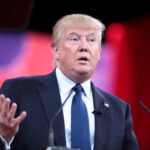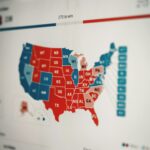Experts are Humans Too
We shouldn’t reject the value of science, but the past year and a half has shown that our faith in experts needs to be questioned.
“Faith” is somewhat of an ambiguous term – what do I mean by it? I don’t mean reasonable trust or confidence based on evidence or experience. I mean a form of confidence or trust beyond what is reasonable, in the sense of “firm belief in something for which there is no proof” or to take something “on faith,” meaning “without question”.
The scientific method has been a boon for humanity’s ability to understand the world accurately. Because of this, it’s easy to take scientific experts at their word. But at the same time, scientists are human beings. They may lie, get things wrong, and like everyone else, they have biases and interests other than pursuing the truth. Countless examples from this pandemic show the serious consequences of our inclination not to question experts.
Dr. Anthony Fauci, director of the National Institute of Allergy and Infectious Diseases, is drawing sharp criticism after Buzzfeed and The Washington Post released a trove of his emails. But it was already apparent that we shouldn’t have held his word as gospel.
One example was his famous obfuscation on masks early in the pandemic, which he later admitted was to prevent a shortage. His face-mask about-face, from saying that “It’s not providing the perfect protection that people think that it is. And often there are unintended consequences. People keep fiddling with the mask and they keep touching their face,” has been characterized as a “change in recommendation” rather than a lie, but other government statements contained less wiggle room. On March 2, 2020, the CDC and FDA stated that masks provided “no added health benefit to the general American public.” Surgeon General Jerome Adams was perhaps the boldest, tweeting that masks are “NOT effective in preventing general public from catching #Coronavirus.”
Arguably, it was reasonable for the government to recommend against wearing masks to preserve them for healthcare workers. But officials could have done this while also telling the truth about whether or not masks work. Without reliable information, individuals had no way of deciphering what to do for the sake of their personal safety and the safety of the people they come in contact with.
The World Health Organization (WHO) has been just as untrustworthy. In January 2020, it repeated false information it received from China that there was no human-to-human transmission of COVID-19. Later that month, the New York Times reported, the WHO declined to label the epidemic an international emergency following “intense lobbying, notably by China.” Recognizing the seriousness of the virus sooner may have saved uncountable lives.
The WHO’s acquiescence to China included secret negotiations in which it agreed not to question China’s response or visit the Wuhan market where the virus arguably originated. The lack of investigation into the virus’s origins in part supported the rejection of the idea that it came from the Wuhan Institute of Virology, which has turned out to be more plausible than it was first declared. The myth that the lab-leak was a conspiracy theory was as much the fault of journalists as it was of scientists, and Matthew Yglesias, formerly of Vox.com, did a good job of detailing how it came about.
No one should deny that information discovered through rigorous, objective analysis should be privileged above baseless conspiracy theories. One person’s truth is not just as good as anyone else’s; some facts are true and others are false. But during this pandemic, people have done much more than reject non-science; we have taken experts on faith and prohibited disagreement, including on topics that scientists were still debating.
“Obviously we should listen to experts, because they know more than we do,” Megan McArdle wrote for the Washington Post. “Just maybe not so much more that we should treat their pronouncements as having dropped from heaven on stone tablets.”
For all the talk about how social-media companies need to regulate “misinformation” online, I’ve never seen an explanation of how authorities can reliably restrict false information without also censoring legitimate questioning of accepted ideas. In an ideal world, truth would rise to the top and lies would die out, but the best social media companies can do to police truth across billions of users is rely on the heuristic of apparently reliable sources. Not only have these authorities proven to be sources of misinformation themselves, but the truth is often far too ambiguous to allow for such blanket policies.
John Stuart Mill wrote in On Liberty that “All silencing of discussion is an assumption of infallibility” and that “The beliefs which we have most warrant for, have no safeguard to rest on, but a standing invitation to the whole world to prove them unfounded.” When we declare it heresy to disagree with scientific conclusions, we’re not supporting reason and truth-seeking, we’re rejecting it.




